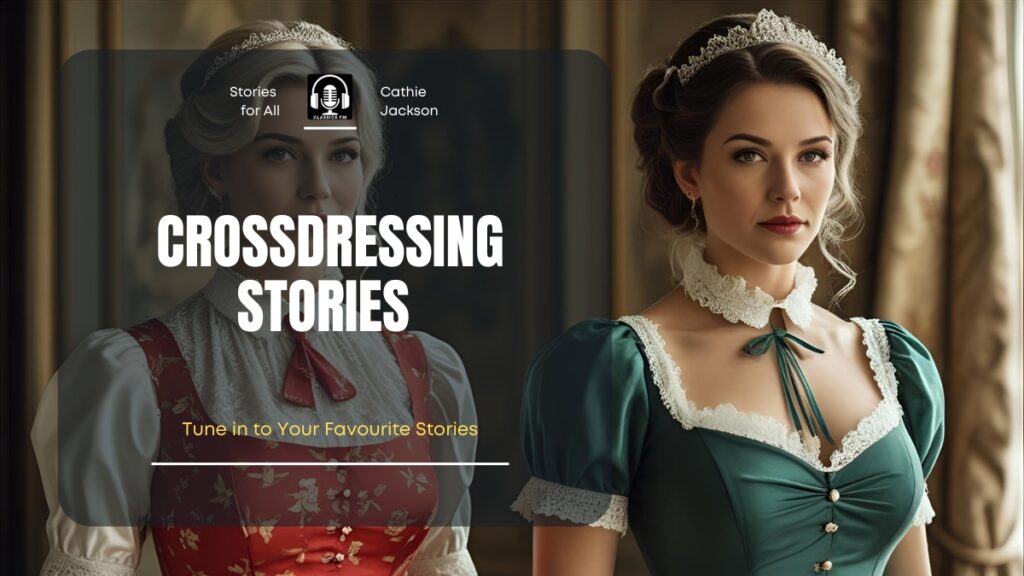You know the feeling. You pick up a book, skim a few pages, and suddenly your pulse is racing. You are glued. You cannot put it down. That is Stephen King’s short story magic. And believe me, I’ve been there.
Most people know King for his novels, right? It, The Shining, Carrie. Big, scary, page-turning epics. But his short stories? That’s where he really shows off. He can do in a few pages what some authors take hundreds to pull off.
I remember the first time I read one of his short stories. Ten pages in, I was sweating a little. My heart was in my throat. And then it ended. Boom. Done. And yet… I kept thinking about it for days. That punch? That lingering unease? Classic King.
Best Stephen King Short Stories
Think you know Stephen King? His short stories hit harder than any novel. Bite-sized terror, unforgettable tension, and twists that stay with you long after the last page.
1. The Mist
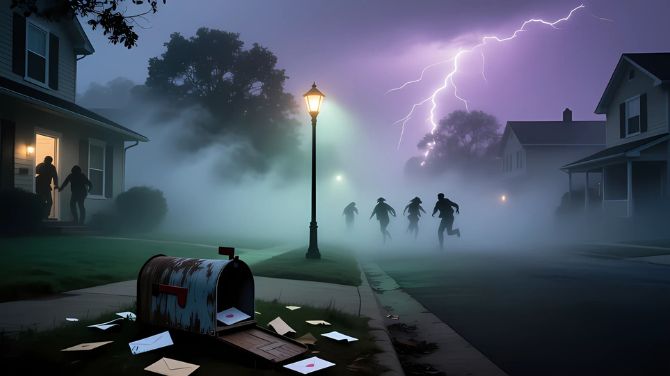
Imagine waking up to a world shrouded in mist. Everything familiar disappears. Shapes loom just beyond your vision. The ordinary becomes terrifying. That’s the universe Stephen King creates in The Mist.
It’s not just a story about monsters or supernatural threats. It’s about fear, human behavior, and the mind’s ability to amplify uncertainty.
Fear of the Unknown
The brilliance of The Mist is King’s handling of fear. Not the fear you can see or touch. The fear that creeps in when you cannot understand what’s happening.
A supermarket, fog outside, and people trapped inside. You start to feel the tension yourself. Every rustle, every shadow, becomes significant. King shows that anticipation can terrify more than action.
Human Reactions Under Pressure
King’s real talent is in portraying human behavior during crisis. Panic spreads faster than the mist. People become irrational. Leaders emerge. Groups fracture.
You begin to reflect on your own behavior. How would you act if the world around you became incomprehensible? King makes you ask that question repeatedly.
Psychological Tension
The Mist demonstrates psychological horror at its best. The tension isn’t only external. It’s internal, personal, and communal.
Fear drives decision-making. Morality becomes flexible. Survival instincts override rational thought. Every choice carries weight, every interaction feels charged.
The Claustrophobic Setting
The trapped supermarket is more than a backdrop. It’s a pressure cooker. Every aisle, every shelf, every line of sight contributes to tension.
You feel confined. Anxious. Vulnerable. The mist outside symbolizes the unknown, but the real horror is inside—within human minds.
Observational Humor and Human Quirks
Even in intense situations, King sprinkles humor and observation. Small quirks, ironic remarks, human idiosyncrasies.
It keeps the story grounded. You smile briefly, then tense again. That rhythm mirrors real life—moments of levity in the middle of fear.
Monsters or Mind?
Yes, there are creatures in The Mist, but King makes it clear that the scariest monsters are often the ones inside us. Fear, paranoia, and panic amplify danger far beyond the actual threat.
You realize that the mist and the creatures are metaphors for uncertainty, chaos, and our own psychological vulnerabilities.
Themes That Resonate
- Fear of the unknown
- Human behavior under stress
- Panic, leadership, and morality
- Isolation and confinement
Even without the supernatural element, these themes are universally relatable. We’ve all faced uncertainty, pressure, and fear of the unknown in our lives.
Atmosphere and Imagery
King doesn’t need long descriptions to make you feel the mist. He uses short, precise language. Fog obscures. Shadows loom. Rustling sounds provoke anxiety.
You sense the cold, damp air. You feel the tension in the characters. Every detail amplifies suspense. That’s the power of King’s atmosphere.
Short Fiction, Maximum Impact
The Mist shows how a short story can deliver enormous impact. Tight structure. Focused suspense. Psychological insight. Emotional resonance.
You read quickly, but it lingers. Your imagination fills in the gaps. Tension continues long after the story ends.
Reflection on Society
The story reflects on group dynamics. How fear can manipulate people. How leadership, religion, and charisma influence decisions.
King highlights human flaws and instincts under pressure. That’s why the story resonates beyond horror—it’s a study in human psychology.
Fear Amplified by Imagination
The Mist proves that imagination can terrify more than reality. The uncertainty of what’s in the fog triggers anxiety, paranoia, and tension.
Even readers familiar with the story feel suspense. The mist itself becomes a character—a force that preys on fear and curiosity.
Personal Connection
Reading this story, I often imagined myself in that supermarket. The mist outside, the tension inside, the unknown beyond.
It’s a reminder that fear is contagious. That human behavior can amplify danger. King’s story becomes a reflection of real-life stress, isolation, and decision-making under pressure.
Pacing and Narrative Style
Short paragraphs. Realistic dialogue. Observational insight. King’s structure keeps you immersed.
You don’t get bogged down in exposition. Every line builds tension, reveals character, or explores human reaction. It’s concise, impactful, and compelling.
Ethical and Moral Reflection
The characters’ choices force reflection. How much morality bends under fear? How far do survival instincts push us?
King never gives easy answers. He leaves readers pondering consequences, human nature, and what we might do in similar situations.
Lasting Impact
Even years later, The Mist stays with you. The fog, the tension, the human flaws—it lingers in memory.
King proves that horror doesn’t need overt monsters or gore. Atmosphere, psychological tension, and human behavior are enough to terrify and resonate.
Conclusion
The Mist is classic Stephen King. Suspenseful, psychologically rich, and unforgettable.
Fear comes from anticipation, human behavior, and uncertainty. Short, precise paragraphs, observational humor, and realistic narrative make it immersive and reflective.
The story reminds us that terror often comes from our minds. From our reactions. From the unknown. That’s why The Mist continues to captivate readers decades after its release.
2. The Body

You remember being a kid, right? That mix of excitement, fear, and wonder. The way a small adventure could feel like the biggest thing in the world. That’s what Stephen King captures in The Body.
It’s not about monsters. Not really. It’s about growing up. Friendship. Choices. Those moments that shape who you are. And somehow, he wraps it all in tension and suspense without ever losing the human touch.
Nostalgia Wrapped in Story
King has a gift for making you feel the past. He captures the voices, the mannerisms, the little details that make childhood vivid. You might smell the old baseball glove. Hear the creak of a floorboard in a summer house. Remember the taste of your first soda from a corner store.
The Body isn’t just scary. It’s nostalgic. Emotional. Bittersweet. You feel like you’re walking through your own childhood memories alongside the characters.
Friendship and Human Connection
The story focuses on kids, and yet it resonates with adults too. Why? Because friendship in childhood is intense. It’s everything. Loyalty, jealousy, courage, fear—it’s raw and unfiltered. King portrays it honestly, without sentimentality.
You read and think, I remember that. The way arguments feel huge. The way secrets are sacred. The way loyalty matters more than logic. King reminds us that these experiences leave marks we carry forever.
Tension and Adventure
Even though it’s about childhood, The Body has suspense. Every step the characters take feels significant. Every choice carries weight. You feel the stakes. Not because there’s a monster behind every corner. But because the story mirrors real fears: making the wrong choice, letting down your friends, facing danger for the first time.
And King builds that tension with his words. Short, precise sentences. Moments of reflection. Flashbacks. Dialogue that feels real. You are there, experiencing both the joy and the fear.
Small Moments, Big Impact
What makes The Body shine is attention to detail. A glance. A word. A simple action. King magnifies it. You remember moments in your own life that seemed small then, but later felt monumental.
Reading it, I kept thinking about my own childhood adventures. The secret hideouts. The dares. The long walks with friends where you thought you were invincible. King captures that perfectly.
Themes Beyond Childhood
The story isn’t just about kids. It’s about growing up. About confronting mortality, making choices, understanding loyalty and morality. King reminds us that even in small moments, life can feel huge.
That’s why adults connect with The Body. Because beneath the nostalgia and friendship is something deeper. Reflection on who we were. Who we became. And how a single experience can linger for decades.
The Art of Storytelling
King’s writing in The Body is deceptively simple. You don’t feel like he’s trying to impress you with words. But every sentence is purposeful. Every paragraph builds character, mood, or tension.
It’s a masterclass in observation. In pacing. In showing rather than telling. You see, feel, and hear everything. And then, in quiet moments, you think about the choices, the feelings, the friendships—and it hits you differently than a typical horror story.
Psychological Depth
Even though the story is grounded in childhood, King doesn’t shy away from psychology. Fear, guilt, hope, loyalty—they are all explored. You understand why a child does something irrational. You see the layers behind decisions that feel small but carry emotional weight.
That’s why The Body resonates beyond its age group. We see ourselves in the characters, even as adults. We remember those formative moments. And King makes us feel them again, vividly.
Why It’s Timeless
The Body works because it’s universal. Everyone has been a kid. Everyone has faced uncertainty, loyalty, or fear. Everyone has felt the intensity of small adventures. King’s story captures that essence perfectly.
Even decades after it was written, the story remains relevant. It’s a reminder that ordinary life can be extraordinary when seen through the lens of memory and emotion.
The Beauty of King’s Short Stories
King’s short stories, especially The Body, show that horror or tension isn’t always necessary to leave a mark. Sometimes it’s observation, sometimes it’s nostalgia, sometimes it’s pure human emotion.
Short stories like this are perfect for modern life. You can read it in a few sittings. Yet the impact lasts. You reflect. You remember. You feel. And sometimes, you notice things in your own past you hadn’t thought about in years.
Personal Connection
Reading The Body, I kept thinking of my own childhood friends. The arguments that felt monumental. The laughter that lasted hours. The small moments that now seem huge. King doesn’t just tell a story. He taps into something universal, something deeply personal.
Even if you didn’t grow up in the same era or place, you recognize the feelings. The memories. That’s why it hits so hard.
Short Paragraphs, Big Ideas
Part of why King’s short stories are effective is pacing. Short paragraphs, quick beats, dialogue interspersed with observation. You read a paragraph, pause, reflect, then move on. You don’t realize how deep the story is until it’s done.
The Body uses this technique masterfully. You feel both the lightness of childhood and the weight of growing up simultaneously.
Lessons From The Body
It’s more than nostalgia. There’s a lesson here about human experience. How moments shape us. How friendship influences choices. How fear and courage coexist.
Even though it’s a story about kids, the reflections apply to adults too. Life is full of small moments with big consequences. King captures that truth beautifully.
Themes That Resonate
- Friendship and loyalty
- Courage under uncertainty
- Growing up and understanding mortality
- The weight of small decisions
These themes aren’t just story elements. They’re mirrors. We read, reflect, and see ourselves. That’s why The Body sticks with you.
King’s Narrative Techniques
- Vivid memory: King draws on childhood observation. You feel like you’re reliving your own past.
- Dialogue-driven: Conversations feel authentic, capturing how kids think and speak.
- Tension in simplicity: Moments of suspense arise naturally from ordinary situations.
- Psychological insight: Even small decisions reveal complex human behavior.
All of this combines to create a story that feels larger than its short length.
Why You Should Read It
Even if you are not a horror fan, The Body is unforgettable. It’s about life, memory, and humanity. King’s writing reminds us that short fiction can hit harder than novels sometimes. Ten pages, twenty pages, and yet you feel months of emotion.
It’s perfect for a busy day. You can read a story in one sitting, yet carry it for weeks. That’s the power of King.
Lasting Impact
When I finished The Body, I thought about my own childhood. I remembered friends, choices, adventures. King has a way of making you reflect without forcing it. The story lingers. That’s why it’s a top short story in his collection.
You don’t just read it. You experience it. You remember it. And you realize how small, ordinary moments can leave a lifetime of impressions.
Conclusion
The Body is not just a story. It’s a journey through memory, friendship, and human emotion. It’s nostalgic, emotional, and deeply human. King shows that even in short form, a story can feel vast. You feel the tension, the excitement, the fear, and the warmth of childhood all at once.
This is why The Body remains one of Stephen King’s most beloved short stories. It’s a reminder that the ordinary can be extraordinary, and that childhood experiences shape us forever.
3. Quitters, Inc.
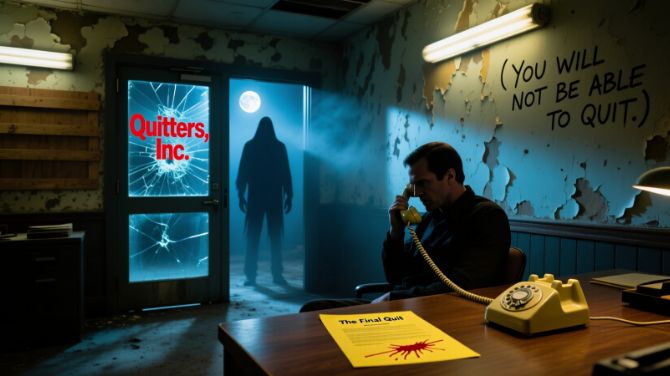
Ever tried to break a habit? You know the struggle. One day you’re motivated, the next day you cave. That’s what Quitters, Inc. is about—how far people will go to change themselves, and the tension that comes with it.
Stephen King doesn’t just tell a story here. He explores human psychology, obsession, and the thin line between self-discipline and obsession. It’s gripping, thought-provoking, and a little unsettling.
Habits, Addiction, and Human Behavior
King has a knack for taking everyday struggles and showing their extreme sides. Smoking. Drinking. Obsessive behaviors. We all have vices or routines that are hard to shake. Quitters, Inc. takes that ordinary struggle and magnifies it.
You start thinking about your own habits. That late-night snack. The extra cigarette. The screen time you promised yourself you’d cut down. King holds up a mirror to our weaknesses. And the reflection is uncomfortable.
Psychological Tension
The brilliance of this story is how King builds tension without monsters or supernatural forces. The fear is psychological. It’s about control. Consequences. Watching every action. The story makes you feel trapped alongside the protagonist.
Even small choices matter here. You can’t ignore them. You can’t cheat. Every moment is a test. And King makes that palpable. You feel it in your chest, in your thoughts, in your subtle anxiety as you read.
Obsession and Control
At its core, Quitters, Inc. examines obsession—both from the perspective of the person trying to quit a habit and the forces enforcing the change. How far would you go to change yourself if every decision was monitored? What lengths would you endure to achieve a goal?
King mixes humor with tension here. You laugh at absurdity, then realize how serious it is. That mixture makes the story unsettling. You’re never sure whether to relax or tense up. And that’s intentional.
Everyday Life Meets Horror
King’s genius is showing that horror doesn’t need supernatural monsters. It can live in offices, homes, clinics. Quitters, Inc. takes a familiar setting and injects it with pressure and dread. The ordinary becomes extraordinary.
You feel the protagonist’s anxiety, anticipation, and dread. You might catch yourself checking your own behaviors, imagining the consequences if your habits were policed like this. That’s how immersive King’s storytelling is.
Humor and Irony
What’s interesting about Quitters, Inc. is the balance of tension and humor. King uses irony, witty observations, and exaggeration to keep the story readable and fun, while still making it uncomfortable.
It’s the kind of humor that creeps under your skin. You chuckle, then realize the situation is darker than it first seemed. That emotional whiplash keeps you hooked.
Personal Reflection
I remember reading this story after trying to quit caffeine myself. Every time I thought of my coffee habit, I imagined a world like King’s—one slip, instant consequences. I laughed, but I also thought: maybe this is closer to how we police ourselves than I realized.
King doesn’t just entertain. He nudges you to think. How do you handle pressure? How do you respond to control? How much is fear motivating your choices without you realizing it?
Structure and Pacing
Short stories are tricky. You need to build character, conflict, tension, and resolution in a tight space. King does this perfectly. Quitters, Inc. starts with a familiar problem, escalates quickly, and keeps the reader engaged from start to finish.
Short paragraphs, crisp sentences, and vivid observations make the story readable and suspenseful. Even small details—gestures, thoughts, sounds—contribute to the psychological pressure.
Why It Resonates
The story isn’t just about quitting habits. It’s about human nature. Our fears, weaknesses, and drive to change. King magnifies those traits, showing both absurdity and profundity.
You start thinking: what habits would I endure extreme measures for? How far would I go to transform myself? That’s the beauty of the story. It lingers after the last page.
Everyday Anxiety Turned Horror
Quitters, Inc. shows that horror can be grounded in normal life. The story captures ordinary anxiety and pushes it to the extreme. King makes you empathize, reflect, and sometimes squirm.
It’s the type of story where you might check your own habits afterward. Where humor and dread coexist. Where tension is psychological, yet very real.
Lessons From Quitters, Inc.
- Small choices have big consequences.
- Change is never simple, and real self-discipline can feel extreme.
- Humor and dread can coexist in life and stories.
- Observing human behavior closely reveals fear, hope, and obsession.
Even though it’s a story, these lessons are universal. You see yourself in the protagonist. You imagine your own reactions. That’s why King’s work transcends genre.
King’s Narrative Techniques
- Observation: Every gesture, thought, and detail contributes to tension.
- Contrast: Humor versus dread keeps the reader on edge.
- Pacing: Short paragraphs, rhythmic tension, and controlled escalation.
- Psychology: Explores obsession, fear, and self-control without preaching.
This combination makes Quitters, Inc. unforgettable.
Practical Takeaways
Even if you’ve never had a serious habit, you can learn from the story. How do you respond under pressure? How do you handle monitoring? How do you enforce self-discipline in your own life? King turns fiction into reflection.
You might even laugh at yourself a little while reading. That mix of recognition, humor, and discomfort is pure King.
Why It’s Still Relevant
Habit formation, self-control, and psychological tension are timeless. Quitters, Inc. remains impactful because it shows human behavior under scrutiny, and we still struggle with the same impulses today.
The story transcends the surface plot. It’s about the human mind, desire for change, and the extremes people face when trying to better themselves.
Lasting Impact
After reading it, you notice your own behaviors. Your routines. Your vices. That’s King’s subtle effect. Even short fiction like this can linger. You think about it days later. You reflect on your choices. You reconsider how you face challenges.
Conclusion
Quitters, Inc. is more than a story about quitting smoking. It’s a masterclass in psychological tension, humor, human behavior, and reflection. Short, precise, and unforgettable, it shows that Stephen King can make ordinary struggles both terrifying and enlightening.
You close the story and carry it with you—not just the plot, but the reflection on human nature, obsession, and the lengths we go to change ourselves. That’s why it earns a top spot in King’s short story collection.
4. The Jaunt
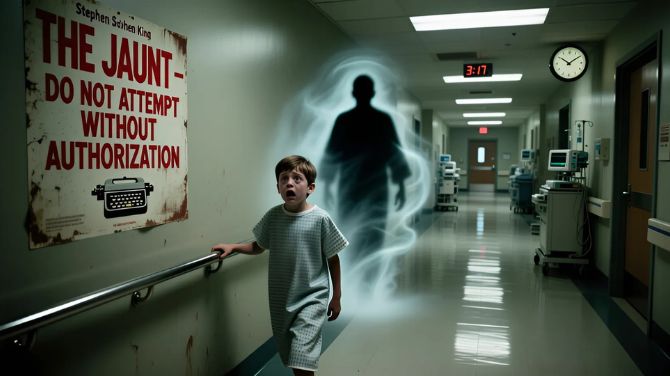
Have you ever thought about teleportation? Not just the sci-fi version, but the reality of moving from one place to another instantly. That’s the world Stephen King takes you into with The Jaunt.
It’s science fiction, sure. But King twists it. He mixes wonder with terror. Makes you question technology, time, and what might be lurking just beyond comprehension.
Wonder Meets Terror
King is a master at blending genres. In The Jaunt, you get the excitement of futuristic innovation and the unsettling feeling that something could go horribly wrong.
You start imagining yourself stepping into a teleportation chamber. The thrill. The fear. The unknown. King doesn’t just show technology. He makes you feel it.
The Human Element
At the center of the story is humanity. Not just gadgets or futuristic machines. King is always fascinated by human behavior when confronted with new possibilities. Curiosity. Fear. Obsession. Greed.
The Jaunt explores how people respond to unknown experiences. Some are rational. Some panic. Some can’t help but push limits. And you, the reader, are watching, feeling tension with every step.
Psychological Tension
King doesn’t rely on traditional horror to scare you. The terror is psychological. It’s the unknown. It’s what the human mind can imagine when faced with the impossible.
You begin to wonder what’s real. What’s safe. What consequences exist that no one anticipated. That tension creeps in slowly, making you tense even outside the story.
Technology and Human Fear
Teleportation in the story is both miraculous and dangerous. King shows how technology can inspire awe but also reveal vulnerabilities. How far would humans go to explore new frontiers? How much risk is acceptable?
Reading this, you realize that the scariest part isn’t the machine. It’s our reaction. Our curiosity. Our hubris. And King makes that tension palpable, page after page.
Pacing and Suspense
The Jaunt moves quickly. You feel the rush of discovery alongside dread. King balances technical detail with suspenseful storytelling. You don’t get bogged down with science; you feel the implications.
Short paragraphs, concise sentences, and sharp pacing make your pulse rise. You read fast. You pause. You imagine. Then you read faster again. That’s the rhythm King creates perfectly here.
The Ethical Question
King also asks subtle ethical questions. Should humanity push boundaries without understanding the consequences? Is curiosity worth the risk? How far would you go to achieve something incredible, even if danger is inevitable?
These questions linger. You can’t ignore them. You reflect on your own decisions. The story becomes more than fiction—it’s a mirror for human nature.
Horror in the Familiar
Even though it’s sci-fi, The Jaunt contains horror elements. King shows that fear doesn’t need a monster. It can come from anticipation, imagination, and the human mind’s inability to process the unimaginable.
You feel claustrophobia in the chambers. You sense suspense in every moment of preparation. And the unknown outside human perception? Terrifying.
Narrative Techniques
King’s narrative style in The Jaunt is precise. Short paragraphs. Observational detail. Dialogue that feels real. Internal thoughts that reveal both fear and excitement.
Every element contributes to suspense. You are drawn into the characters’ world without feeling lost in technical jargon. King makes science fiction human.
Personal Reflection
Reading The Jaunt, I kept imagining what it would feel like to step into a machine that could instantly transport me anywhere. Exciting, right? But also… terrifying. What if something went wrong?
King taps into that duality perfectly. You are both amazed and unsettled. That’s the genius of this story.
Themes That Resonate
- Curiosity versus caution
- Human vulnerability in the face of technology
- The psychological impact of the unknown
- Fear of consequences we cannot predict
Even though it’s a sci-fi tale, these themes are universal. They apply to everyday life. Every new experience. Every risk we take without full knowledge.
The Art of Short Fiction
King shows how short stories can pack enormous impact. In just a few pages, he explores complex ideas, builds tension, and delivers emotional weight. The Jaunt proves that brevity doesn’t mean shallow storytelling.
You read quickly, but the ideas linger. The questions remain. And the tension continues long after the story ends.
Why It’s Deeply Unsettling
The Jaunt doesn’t need monsters. The terror comes from human imagination. From fear of the unknown. From realizing how small we are in the face of possibility.
Even in ordinary life, that feeling resonates. Think about trying something risky. Facing an unfamiliar situation. Standing on the edge of a challenge. That’s the core of King’s horror here.
Reflection on Technology
Reading this story today, with our tech-driven world, feels eerily relevant. King predicted the anxiety that can accompany innovation. How often do we rush headlong into new tools without understanding the risks?
The Jaunt reminds us to balance wonder with caution. To respect the unknown. To respect the consequences that may not be immediately obvious.
The Human Mind
King emphasizes the mind’s power. Imagination can terrify more than reality. The Jaunt is a testament to psychological horror, showing how anticipation, curiosity, and fear interact.
You start thinking: how much of our fear comes from real danger versus what we imagine? King explores that line brilliantly.
Humor and Observation
Even in tension, King sprinkles observational humor. Small remarks, ironic commentary, character quirks. It makes the story readable and engaging while keeping the suspense intact.
You smile. You tense. You reflect. That emotional rollercoaster is King at his best.
Lasting Impact
After finishing The Jaunt, you can’t stop thinking about it. Not just the plot, but the ideas. The fear. The wonder. The human reaction to the unimaginable.
Short fiction like this demonstrates that a story doesn’t need hundreds of pages to linger. The psychological tension, ethical questions, and human vulnerability make it memorable for years.
Conclusion
The Jaunt blends science fiction and horror seamlessly. It makes you question technology, human curiosity, and the limits of imagination. Short paragraphs, precise pacing, and a natural narrative style make it readable, immersive, and unforgettable.
Stephen King shows that terror isn’t always about monsters. Sometimes it’s about what we can’t see, what we can’t predict, and how our own minds amplify uncertainty. That’s why The Jaunt remains a top short story in his collection.
5. Night Surf

Ever felt that prickling tension when the world seems off? The way a simple breeze can feel like a warning, or sand under your feet turns suspiciously sharp? That’s the kind of atmosphere Stephen King creates in Night Surf.
This isn’t a story about monsters. It’s about humans, survival, and what happens when disaster strikes. Fear lives everywhere—outside, yes, but more importantly inside the mind.
Disaster Strikes
King doesn’t waste time setting up huge, elaborate scenarios. A disaster has already happened, and we see the aftermath.
It’s subtle at first. Wind rustles. Waves crash. Silence hangs between moments of sound. You feel isolated, exposed, vulnerable. King proves that suspense doesn’t need gore.
Isolation Amplifies Fear
Isolation is a character here. Being cut off from safety, from familiar people or routines, magnifies every worry. Every glance, every sound becomes significant.
King doesn’t over-explain. You feel the wind on your skin, the sand underfoot, the emptiness around the characters. And because it’s believable, the tension grows naturally.
Survival Instincts
The characters are focused on survival. Food, water, shelter. Decisions matter. Every action has weight.
King shows how panic and stress interact with rational thought. Sometimes logic wins. Sometimes fear overrides it. You recognize that struggle immediately because it’s human, not supernatural.
Fear of the Unknown
Even though we know a disaster has happened, the story doesn’t reveal everything. What exactly caused the catastrophe? What’s out there?
King understands that the unknown is terrifying. What we can’t see or control fuels imagination—and imagination can be more powerful than any monster.
Human Behavior Under Pressure
King examines how people behave when stripped to survival mode. Some are cooperative. Some selfish. Some reckless.
You watch the dynamics shift. Alliances form, break, and reform. Even ordinary characters become unpredictable. It’s relatable because in any stressful situation, you’d see similar reactions.
The Role of Atmosphere
King’s mastery is in atmosphere. A simple breeze becomes tension. Shifting sand feels threatening. The world is silent, but charged.
You don’t need long descriptions. The brevity makes it more intense. Every word matters. Every sentence adds weight. That’s why the story feels alive.
Psychological Tension
Night Surf is psychological horror at its core. The fear doesn’t come from monsters—it comes from anticipation, imagination, and internalized anxiety.
You start imagining scenarios the characters haven’t even faced. You tense. You pause. You think. That’s King’s genius: your mind completes the horror.
Reflection on Fear
Reading this, you realize how human fear works. Often, it’s not the event itself, but how our minds react to it. The wind, the silence, the shifting sand—they’re triggers.
King captures that perfectly. You recognize your own tendencies. How quickly panic spreads. How small cues can feel like enormous threats.
Personal Connection
I remember standing on a beach during a storm once. Not dangerous, but unsettling. The wind, the sand whipping across skin, the waves crashing—it reminded me of Night Surf.
King taps into those universal sensations. You don’t need to live through a disaster to feel his tension. You’ve felt a version of it in life: anxiety, uncertainty, isolation.
Subtle Horror
There’s no overt monster here. The horror is subtle. You feel it in anticipation, in watching human behavior under stress.
King makes the ordinary terrifying. Sand, wind, and silence become enough to keep you on edge. That’s a hallmark of his storytelling.
Humor and Humanity
Even in tension, King sprinkles in small humor and human observation. A character quip. A casual remark. Tiny moments that make you smile, then tense again.
It keeps the story readable. It keeps the suspense from becoming overwhelming. You laugh. You reflect. You tense. That emotional rhythm is King at his best.
Themes That Resonate
- Fear in the face of disaster
- Isolation and vulnerability
- Human behavior under stress
- Psychological horror without monsters
These themes are universal. Even outside the story, you reflect on your own fears and reactions in stressful times.
The Power of Short Fiction
King demonstrates that a short story can deliver profound impact. Atmosphere, psychological tension, character study—all in a few pages.
You read quickly, but the story lingers. The tension stays. Your imagination fills in gaps. That’s why Night Surf is memorable.
Survival and Reflection
The story forces you to think about survival—not just physically, but mentally. How do we cope with unknown events? How much is fear, how much is reality?
King doesn’t give easy answers. He makes you ponder. And that reflection adds depth beyond simple suspense.
Realism and Engagement
Despite being short fiction, Night Surf feels real. The characters’ fears, decisions, and interactions are authentic. The tension is tangible.
King’s writing style—short paragraphs, precise language, observational detail—keeps you engaged from start to finish.
Lasting Impact
After finishing, you continue thinking about isolation, disaster, and fear. You notice moments in your own life where tension arose from anticipation, not reality.
King’s stories often linger, and this one is no exception. The realism and psychological depth make it stick.
Conclusion
Night Surf is a masterclass in atmosphere, fear, and human behavior. It shows how suspense doesn’t require monsters or gore.
Stephen King demonstrates that the mind, isolation, and anticipation are enough to terrify. Short, impactful paragraphs, realistic tension, and a reflective narrative make it readable, immersive, and unforgettable.
Even decades later, the story remains relevant for anyone curious about survival, human behavior, and the power of fear.
6. I Know What You Need
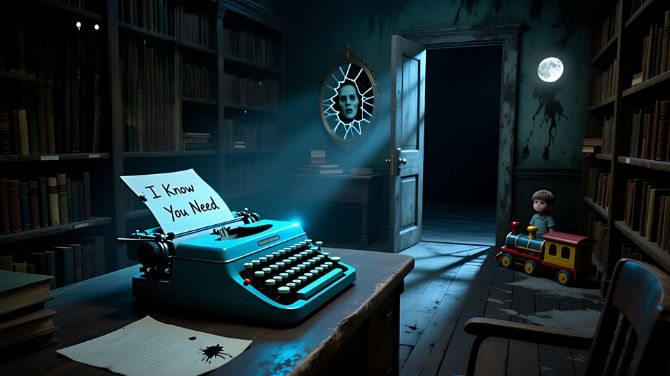
Have you ever felt someone could read your mind? That they understood you better than you understand yourself? That unsettling sensation is the heartbeat of Stephen King’s I Know What You Need.
This isn’t a story about monsters or gore. The terror is quiet, creeping, subtle. It lives in the mind, in the spaces between what’s said and what’s left unsaid.
Desire and Manipulation
At its core, the story is about desire. Human desire. How easily it can be influenced. How obsession grows in silence.
King shows manipulation with frightening precision. You begin to question motives, intentions, and how well you know the people around you. Even ordinary actions can feel loaded with hidden meaning.
Psychological Tension
The brilliance of this story is tension built purely through psychology. No external monsters. No overt threats. Just human minds interacting in ways that are unpredictable and unsettling.
The anticipation, the subtle shifts in conversation, the lingering glances—they all combine to make you feel anxious. Your mind fills in details, often imagining worse than what’s written.
Observation and Humor
Even in tension, King sprinkles observational humor. Tiny remarks. Ironic commentary. Quirks in character behavior.
These moments keep the story engaging. You smile. You tense. You reflect. That emotional rollercoaster mirrors real human experience and makes the suspense more effective.
Desire as a Weapon
King explores how desire can be manipulated. People crave recognition, attention, connection. I Know What You Need demonstrates how those cravings can become tools for manipulation.
It’s unsettling because it feels possible. Not supernatural. Not impossible. Just human psychology at work.
The Thin Line
Fascination versus obsession. Trust versus suspicion. King examines that thin line brilliantly. You watch relationships strain and bend under subtle influence.
And as a reader, you start asking yourself: could I notice manipulation? Would I resist it, or fall prey to it unknowingly?
Personal Reflection
I remember reading this story and thinking about subtle ways people influence one another. In office politics, friendships, or even casual social interactions. King’s story makes you hyper-aware of those dynamics.
It’s unnerving, yes. But it’s also fascinating. You start noticing details you would have overlooked before. That’s the quiet power of the story.
Short Fiction, Maximum Impact
King proves that short stories can hit hard. In relatively few pages, he delivers tension, character depth, psychological insight, and emotional resonance.
You read fast. But the story stays with you. Your mind continues to explore what’s happening, what might happen, and how it relates to your own experiences.
Suspense Without Monsters
One of the story’s strongest points is that it doesn’t need monsters. The suspense comes from anticipation, human desire, and the mind’s capacity for paranoia.
You feel nervous reading dialogue. You question characters’ motives. You imagine outcomes that never appear on the page. That’s King’s subtle, insidious technique.
Themes That Resonate
- Desire and its consequences
- Manipulation and subtle control
- The thin line between fascination and obsession
- Psychological tension as horror
These themes remain universal. They resonate with anyone who has ever felt desire, vulnerability, or suspicion in relationships.
Pacing and Structure
King’s short, punchy paragraphs enhance tension. Internal thoughts interlace with dialogue. Observations are concise but vivid.
This pacing mirrors the psychological tension. You don’t just read; you experience it. Every sentence contributes to suspense, character insight, or reflection.
Emotional Rollercoaster
The story balances humor, tension, fascination, and unease. Observational quirks lighten the mood briefly. Then tension sneaks back in.
You smile. You worry. You ponder. That rhythm keeps you immersed and invested from start to finish.
Reflection on Human Nature
I Know What You Need is also a study of human nature. How easily we are influenced. How desire can blind us. How subtle manipulation can affect decisions.
King forces readers to reflect on their own reactions. How often do we miss cues? How often do we surrender to fascination without realizing it?
Psychological Horror, Not Physical
This story is a prime example of psychological horror. You don’t need gore. You don’t need violence. The human mind itself generates suspense and fear.
King shows that anticipation, desire, and subtle influence can terrify just as much—or more—than monsters ever could.
Lasting Impact
After finishing I Know What You Need, you continue thinking about it. About human desire. About manipulation. About your own susceptibility.
That lingering effect is the hallmark of King’s best work. The story embeds itself in your mind and challenges your perceptions.
Conclusion
I Know What You Need demonstrates Stephen King’s mastery of psychological suspense. Short paragraphs, reflective narrative, humor, and observation make it readable and immersive.
The horror is subtle but insidious. Desire, manipulation, obsession, and anticipation create tension that lingers.
King proves that true terror doesn’t need monsters. It lives in the mind. In human interaction. In what we want, and how far we’ll go for it.
7. Children of the Corn
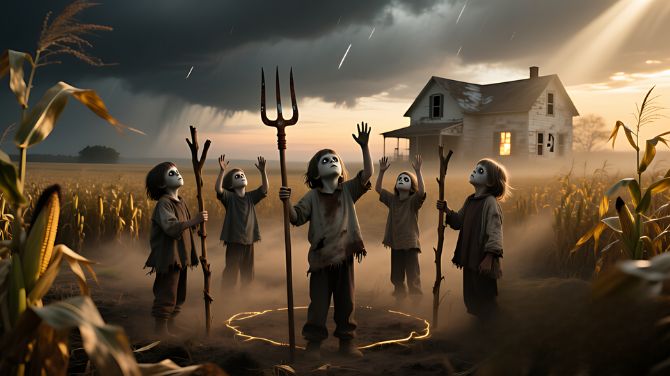
Rural America. Endless cornfields. Silence broken only by the wind and the rustling of stalks. That’s where Stephen King drops you in Children of the Corn.
It’s a story that doesn’t need monsters, gore, or chaos to terrify. The fear comes from atmosphere, setting, and human nature. King’s mastery of suspense is on full display.
The Rural Setting
There’s something about rural isolation that heightens tension. Empty roads. Farmhouses that seem abandoned. Cornfields that stretch farther than the eye can see.
King uses the setting as a character. The landscape itself feels watchful, almost sentient. You start to feel that unease personally, like you’re walking the roads alongside the protagonists.
Eerie Tension
From the first page, tension seeps in. It’s subtle. Almost imperceptible at first. The way children behave differently. Adults missing. Shadows in the fields.
You notice it, feel it, and your mind starts to fill in the gaps. King shows that suspense doesn’t need to be loud or in-your-face. Quiet, creeping dread is enough to make your skin crawl.
Something Wrong Under the Surface
What makes the story unforgettable is that something feels wrong everywhere. You can’t quite name it at first. The town, the cornfields, the silence—all contribute to a feeling that danger is lurking.
King doesn’t explain immediately. He lets the reader’s imagination do the work. And that’s far more terrifying than any description of violence.
Human Behavior in Isolation
King explores how people act when isolated and influenced by group mentality. Children take on authority in eerie ways. Adults are absent or powerless.
You start to question what you would do in that situation. Would you resist? Would you follow? King makes you reflect on human behavior under pressure and fear.
Psychological Suspense
The story’s tension is psychological. The horror lives in anticipation and uncertainty.
Cornfields become traps. Innocence becomes menacing. You never know who to trust, or what is real. That’s King’s genius: he makes ordinary things feel horrifying.
Observational Humor and Quirks
Even in tense moments, King adds subtle humor and observation. A small quip. A character’s nervous behavior.
These touches make the story readable. You smile, then tense again. That rhythm keeps the story immersive without overwhelming you with fear.
Themes That Resonate
- Isolation and vulnerability
- Innocence turned menacing
- Human behavior under pressure
- Fear that comes from atmosphere and anticipation
These themes are universal. They make you consider how environment and social structures shape behavior.
Atmosphere and Imagery
King paints imagery with precision. Cornfields sway in the wind. Shadows stretch unnaturally. Roads seem endless.
You don’t need long paragraphs or flowery prose. Every sentence builds the setting and tension simultaneously. The result is a world you can see, hear, and feel.
Short Fiction, Maximum Effect
Children of the Corn demonstrates the power of short fiction. Tight, concise storytelling keeps the narrative focused while building suspense.
You read quickly, but the story lingers. The fear, unease, and reflection stay with you long after the last page.
Fear Without Gore
King proves that fear doesn’t need violence. It can come from setting, human psychology, and the unknown.
The children, the cornfields, and the absent adults create terror. Your imagination fills in the rest. That’s why it works so well and remains memorable.
Reflection on Society
Beneath the horror, King offers subtle commentary. How do societies form rules? How can innocence become distorted under isolation? How do groups enforce belief systems?
You start thinking about power dynamics, obedience, and fear. Even in a rural, fictional setting, the implications are universal.
Human Nature Explored
Children, often symbols of innocence, take on authority in ways that feel unnatural. Adults lose control.
King shows the malleability of human nature. Fear and isolation can warp behavior. You can’t help but consider your own reactions under extreme circumstances.
Personal Connection
Reading this story, I imagined walking through endless cornfields as a child. The silence, the rustle, the sense that someone—or something—was watching.
King taps into universal sensations of vulnerability. That makes the story resonate even beyond the fictional setting.
Pacing and Structure
Short, punchy paragraphs. Concise dialogue. Observational detail. King’s structure mirrors tension.
You read fast. Your pulse picks up. The story builds suspense gradually, never letting up. You feel every nuance of dread.
Ethical and Moral Reflection
You start questioning morality under pressure. What would you do if innocence became threatening? How do fear and survival influence decisions?
King never answers directly. He leaves you reflecting. That open-ended tension is part of what makes the story powerful.
Lasting Impact
Even years after reading, you remember the rustling cornfields, the eerie children, and the isolation. King’s subtle, atmospheric storytelling leaves a permanent impression.
Short fiction like this proves that suspense can be more enduring than action or gore. The mind remembers what it imagines more vividly than what is shown.
Conclusion
Children of the Corn is classic Stephen King. Rural, atmospheric, psychologically tense, and unforgettable.
It’s proof that horror doesn’t need monsters or gore. Fear can come from setting, behavior, anticipation, and the human mind.
Short paragraphs, keen observation, subtle humor, and reflective narrative make it readable, immersive, and lasting. King demonstrates that the smallest details—a cornfield, a glance, a silence—can terrify more than anything explicit.
Short Stories Are a Different Beast
Let’s get this straight. Short stories are tricky. You can’t mess around. No padding. Every word counts. And King knows it.
Have you noticed how in his short stories, even the first paragraph can set the mood? You are in a normal, boring setting. Maybe a diner, maybe a house. Then slowly, slowly… something feels off. Just a word here, a glance there. And your skin tingles. That’s the beauty.
Short stories let King experiment. He can twist reality, bend characters, play with suspense, all without committing to 1,000 pages. It’s like a perfect horror espresso shot. Quick, strong, unforgettable.
Why King’s Short Stories Work So Well?
Stephen King doesn’t just scare you. He makes you think, feel, and linger in the tension long after the page ends. Here is why his short stories hit harder than most novels.
Characters That Stick
Even in ten pages, you feel them. Their fears, quirks, small joys. You know them. You care. You might even see a bit of yourself in them.
The Twist That Slaps You
King’s endings? Man. Sometimes subtle, sometimes, boom—hit-you-in-the-chest kind of shocking. He doesn’t do cheap scares. Everything builds naturally.
The Ordinary Turned Terrifying
Why is it that a normal suburban street can suddenly feel like a nightmare? That’s King. He makes you question your own backyard, your own living room.
Psychology Over Gore
Sure, some stories are spooky. Some are outright chilling. But mostly, King’s horror is in your head. Fear, guilt, obsession, regret. That stuff hits harder than any monster.
Themes You’ll See Again and Again
Think about it. You finish a King story, and the next day, you find yourself thinking… “What if that happened to me?”
- Isolation: Physically alone, emotionally alone, trapped with your thoughts.
- Memory and the Past: Regrets, mistakes, unresolved trauma—they haunt characters like ghosts.
- The Unknown: Ordinary things that slowly feel wrong. A familiar place can turn sinister.
- Human Weakness: Often the scariest part isn’t a monster—it’s what we do when we panic, lie, or hide.
Doesn’t that resonate? Sometimes the mind is scarier than anything else.
Why Short Stories Are Perfect for You?
Busy? Don’t have time for a novel? No problem. You can read a King short story in one sitting. Lunch break, bus ride, rainy afternoon—done.
You get a taste of his full range too: horror, suspense, science fiction, a little dark humor. You feel the intensity, the tension, the emotional punch—without committing to 50 hours of reading.
And hey, even if you’ve read his novels, short stories will still surprise you. Different energy. Sharper edges. More bite.
Collections Worth Checking Out
King has published some incredible short story collections. They each showcase his range and depth. Some are creepy, some are thought-provoking, some make you laugh nervously.
Reading a collection is fun. You can binge a few stories in one day, see recurring themes, and even spot seeds for his novels. King’s short stories are like appetizers—you get the flavor of his style before the full course.
Tips for Reading King’s Short Stories
Reading Stephen King’s short stories is more than just thrill and suspense. Here are some tips to get the most from his gripping, thought-provoking tales.
- Read in a quiet spot: Tension builds best when you are not distracted.
- Take breaks: Some stories are layered. Let them breathe in your mind.
- Notice motifs: Isolation, regret, ordinary-turned-horrific, supernatural intrusions—they pop up a lot. Recognizing them gives you a deeper appreciation.
- Try different collections: King experiments with tone, pacing, and mood. Some stories are fast and punchy; others are slow-burn. Find what clicks for you.
Personal Note
I’ll admit it. Sometimes I don’t even read a full story in one sitting. I stop, think, let the tension simmer. I check the lights. Maybe glance over my shoulder. That’s the thing with King’s short stories. They linger. They stick. They worm into your head in ways novels often can’t.
Even when I’ve read dozens of his novels, I go back to the short stories. The intensity. The brevity. The pure, distilled King. It’s like a shot of adrenaline and imagination straight to the heart.
Final Thoughts
Stephen King’s short stories are small but mighty. They are perfect for anyone who loves suspense, tension, psychological depth, or just a quick thrill that sticks.
Short stories can be read anywhere. No commitment. Big payoff. And King makes sure you leave thinking, worrying, laughing nervously, or staring at the ceiling long after you close the book.
If you’ve never tried them, start now. One story at a time. Ten pages. Fifteen pages. Short, intense, unforgettable.
Because with King, even the small stuff is huge.


